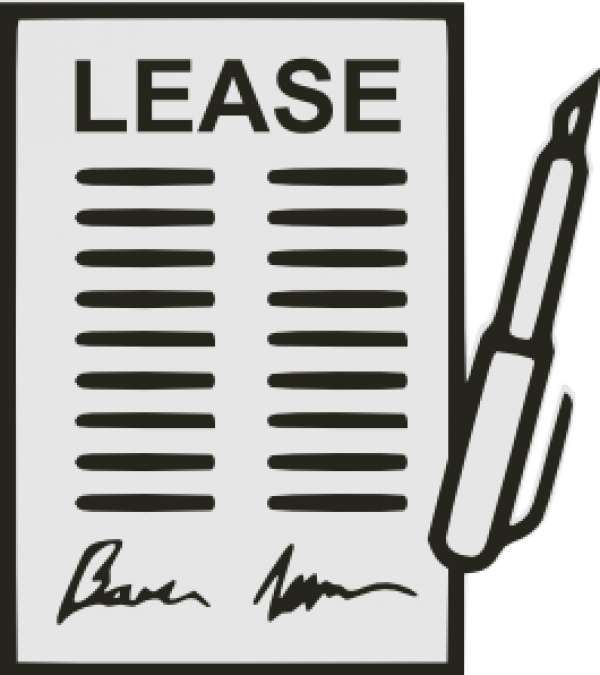
Read also: SUBLEASE BY LESSEE
-
Sellers desirous of making conditional sales of their goods but do not wish openly to make a bargain in that form, for one reason or another, have frequently resorted to the device of making contracts in the form of leases either with option to the buyer to purchase.
-
Rules of contract of sale of personal property the price of which is payable in installments are equally applicable to the so-called leases of personal property.
-
The remedies available for the seller are alternative and not cumulative and therefore, the exercise of one bars the exercise of the others.
Lease with Options to Purchase has been beneficial for many buyers since it gives them enough time to pay for the property while they enjoy its use. And sellers who do not wish to enter into conditional contracts of sale have often resorted to lease with options to purchase, but nevertheless the underlying contract would not prevent the transfer of ownership of the subject matter to the buyer-lessee upon fulfillment of the condition of the full payment of the “rents.”
In case the lessee- buyer fails to pay, what are the available options for the lessor-seller?
The law says:
The preceding article, i.e. ARTICLE 1484 states that:
“In a contract of sale of personal property, the price of which is payable in installments, the vendor may exercise any of the following remedies:
(1) Exact fulfillment of the obligation, should the vendee fail to pay;
(2) Cancel the sale, should the vendee’s failure to pay cover two or more installments;
(3) Foreclose the chattel mortgage on the thing sold, if one has been constituted, should the vendee’s failure to pay cover two or more installments. In this case, he shall have no further action against the purchaser to recover any unpaid balance of the price. Any agreement to the contrary shall be void.”
The clause “when the lessor has deprived the lessee of the possession or enjoyment of the thing,” as stated in the law means that for failure to pay, the “lessor” is apparently exercising the right of an unpaid seller, and has taken possession of the property. This is so even if the property had been given up in obedience to the “lessor’s” extrajudicial demand, such surrender not really being voluntary. (U.S. Com. Co. v. Halili, L-5535, May 29, 1953).
The rules on contract of sale of personal property has been equally applied to lease of personal property with option to buy.
Leases of personal property with option to buy are really sales of personalty payable in installments. Accordingly, the rules of contract of sale of personal property the price of which is payable in installments are equally applicable to the so-called leases of personal property. This is to prevent indirect violation of Article 1484.
Sellers desirous of making conditional sales of their goods but do not wish openly to make a bargain in that form, for one reason or another, have frequently resorted to the device of making contracts in the form of leases either with option to the buyer to purchase for small consideration at the end of the term provided the so-called rent has been duly paid, or with the stipulation that if the rent throughout the term is paid, the title shall thereupon vest on in the lessee. (Filinvest Credit Corp. vs. Court of Appeals, 178 SCRA 188 [1989].)
Through the set-up, the vendor by retaining ownership over the property in the guise of being the lessor, retains likewise the right to repossess the same, without going through the process of foreclosure, in the event the vendee-lessee defaults in the payment of the installments. There arises, therefore, no need to constitute a chattel mortgage over the movable sold. More important, the vendor, after repossessing the property and, in effect, cancelling the contract of sale, gets to keep all the installments-cum-rental already paid. (Filinvest Credit Corp. vs. Court of Appeals, 178 SCRA 188 [1989].)
Repossession by lessor need not be through court action.
The law does not require that the deprivation of the enjoyment of the property be brought about through court action. Specially where the contract specifically authorizes the lessor to repossess the property whenever the lessee defaults in the payment of rent, court action for such purpose is not essential. (U.S. Commercial Co. vs. Halili, supra.)
Thus, in case the buyer fails to pay two or more installments, the seller may elect to pursue either of the following remedies: (1) exact fulfillment by the purchaser of the obligation; (2) cancel the sale; or (3) foreclose the mortgage on the purchased property if one was constituted thereon. The remedies are alternative and not cumulative and therefore, the exercise of one bars the exercise of the others.
Alburo Alburo and Associates Law Offices specializes in business law and labor law consulting. For inquiries, you may reach us at info@alburolaw.com, or dial us at (02)7745-4391/0917-5772207.
All rights reserved.
SUBSCRIBE NOW FOR MORE LEGAL UPDATES!
[email-subscribers-form id=”4″]

